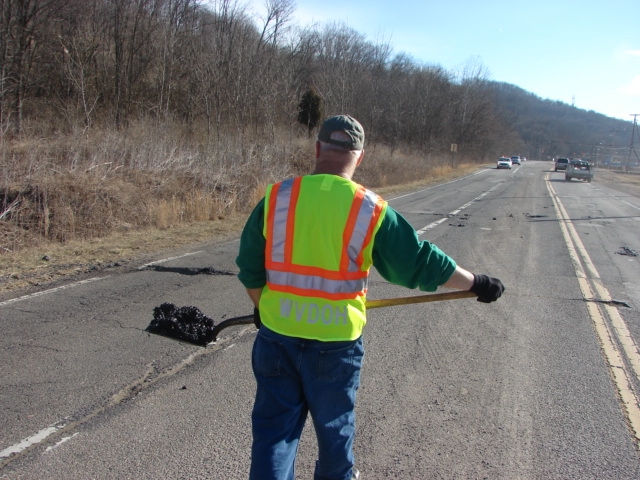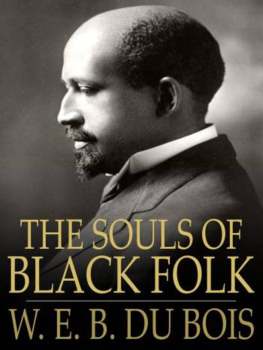 Articles in this section are from the past 6 to 12 months,
Articles in this section are from the past 6 to 12 months,
 I was at Wendy’s last week and ordered a pulled pork sandwich. I know that if this piece was a tweet that information would be enough. But I am an old guy and don’t assume that anyone else would care that I ordered a pulled pork sandwich unless there were other circumstances that make the story interesting. The girl behind the counter who took my order was wearing a hijab. I hadn’t noticed. A hijab is not an exotic fashion statement anymore – at least not in our neck of the woods, so she didn’t stick out in any way. I was salivating over the poster of the pulled pork sandwich piled high with slaw, and didn’t notice the girl behind the counter. The minute I looked down and saw what I had done I was really embarrassed. The last thing I wanted to do was order pork from a Muslim girl. She didn’t have to handle the pork at all. Someone else made my sandwich. But I felt really bad about it just the same.
I was at Wendy’s last week and ordered a pulled pork sandwich. I know that if this piece was a tweet that information would be enough. But I am an old guy and don’t assume that anyone else would care that I ordered a pulled pork sandwich unless there were other circumstances that make the story interesting. The girl behind the counter who took my order was wearing a hijab. I hadn’t noticed. A hijab is not an exotic fashion statement anymore – at least not in our neck of the woods, so she didn’t stick out in any way. I was salivating over the poster of the pulled pork sandwich piled high with slaw, and didn’t notice the girl behind the counter. The minute I looked down and saw what I had done I was really embarrassed. The last thing I wanted to do was order pork from a Muslim girl. She didn’t have to handle the pork at all. Someone else made my sandwich. But I felt really bad about it just the same.
There is a Muslim man who parks in the Church parking lot every so often to pray. He gets out of his car, carefully places his prayer rug on the ground, and kneels on it to pray. If I am mowing when he stops by I always turn off the mower until he is done. I do not want to be disrespectful.
In Acts 23 the Apostle Paul has been arrested, and is brought before the Sanhedrin. As he begins his defense, Ananias, the High Priest, orders that he be struck in the mouth. Paul declares:
God is going to strike you, you whitewashed wall! Do you sit to try me according to the Law, and in violation of the Law order me to be struck! (Acts 23.3)
The crowd is shocked. They ask “Do you revile God’s High Priest?” Paul immediately apologizes: “I was not aware, brethren that he was the High Priest; for it is written you shall not speak evil of a ruler of your people” (vv.4-5). Paul quotes Exodus 22.28: “You shall not curse God, nor curse a ruler of your people.” A curse is exactly what Paul pronounced, and he lost the attentiveness (and certainly the sympathy) of the crowd. His apology and his use of scripture regained it. No one will listen to you when you have disrespected things they respect.
When Jesus is faced with an identical situation in John 18, He issues no curses, makes no threats, indulges in no name-calling. He just speaks truth: “If I have spoken wrongly, then bear witness of the wrong. But if rightly, then why did you strike me?” (v.23) Jesus acted respectfully and had to do no back-tracking. The Bible makes clear that we should show basic respect to everyone (I Peter 2.17).
In the olden days, when I was a boy, I used to listen to the radio all night long. There was no digital tuning, only a knob. At night, on AM, you could find all kinds of exotic stations from distant signal towers by delicately manipulating that knob. It was like space exploration, there in the darkness – finding a Klezmer station from New York City, or a Mariachi band broadcasting from Juarez. You could only catch these far-flung stations for a brief moment before static swallowed them up in the darkness. There were ways to minimize the static and hold on to the station for a few seconds longer, but eventually the static predominated, and you had to move the dial in search of another colorful destination.
Disrespect is the loudest and most persistent form of static which obscures personal communication. The opportunities to really share the truth are fleeting and precious. They will be non-existent if we turn up the static with disrespect.
Always be ready to make a defense to everyone who asks you to give an account for the hope that is in you – but with gentleness and reverence. I Peter 3.15
 I remember vividly the graphics from my old Western Civilization book, Men and Nations, by Mazour & Peoples, illustrating the genius of Roman road construction – the deep bedding, the layers of different sized gravel, and the carefully laid surface stone. A boy from West Virginia would be impressed by roads that had lasted two thousand years. The slag, hot-patch, and dried grits that passed for asphalt in the great mountain state regularly produced potholes large enough for a Holstein to swim in. I remember that back in 1978, when Jay Rockefeller successfully ran for Governor, his campaign song was “I’m Jumpin’ like a Toad on this West Virginia Road.” Then again, thinking back, his complaint about the roads might have been an excuse to travel around the state in his private helicopter without looking like a chardonnay swilling carpetbagger.
I remember vividly the graphics from my old Western Civilization book, Men and Nations, by Mazour & Peoples, illustrating the genius of Roman road construction – the deep bedding, the layers of different sized gravel, and the carefully laid surface stone. A boy from West Virginia would be impressed by roads that had lasted two thousand years. The slag, hot-patch, and dried grits that passed for asphalt in the great mountain state regularly produced potholes large enough for a Holstein to swim in. I remember that back in 1978, when Jay Rockefeller successfully ran for Governor, his campaign song was “I’m Jumpin’ like a Toad on this West Virginia Road.” Then again, thinking back, his complaint about the roads might have been an excuse to travel around the state in his private helicopter without looking like a chardonnay swilling carpetbagger.
In ancient times, when an official visit was made by a head of state, one of the first preparations made was to improve the road he would travel. Holes were filled in, rough places smoothed out, obstacles removed, bridges repaired. Something like this is promised in preparation of the coming of the Messiah:
A voice is calling, “Clear the way for the LORD in the wilderness! In the desert make a smooth highway for our God. Let every valley be lifted up, and every mountain and hill be made low. Let the rough ground become a plain, and the rugged terrain a broad valley. Then the glory of the LORD will be revealed…(Isaiah 40.3-5).
All four gospels identify John the Baptist as the voice crying aloud in Isaiah 40. The coming of the Messiah, then, is the event for which preparations are made. John’s ministry is the preparation for the coming of the Messiah.
We know this. We know that he announced the coming of the Messiah. We know that he baptized Jesus. We know that he identified Jesus as the “Lamb of God.” We know that he pronounced the current generation in need of salvation. We know that his mere presence as a prophetic voice was itself a herald of a new day since the prophetic voice had been silent for centuries. But I am afraid we forget the primary preparation he made for the coming of the Messiah.
All three Synoptics mention something first – something primary (Matthew 3.1-5, Mark 1.4, Luke 3.3). The main thing John the Baptist labored to achieve in order to clear the way for the Messianic Message was to establish a direct connection between repentance & baptism and the forgiveness of sins.
John the Baptist appeared in the wilderness preaching a baptism of repentance for the forgiveness of sins. (Mark 1.4)
And he came to the district around the Jordan preaching a baptism of repentance for the remission of sins. (Luke 3.3).
The Jews had been killing animals to address their many sins – thousands and thousands of animals. John told them this system will be through when the Messiah comes. When the Messiah comes one who repents and is baptized will be forgiven. No more slaughter. The Lamb of God will have been slain once for all. John taught the people to associate repentance & baptism with forgiveness of sins.
This, of course, is what was preached on the Day of Pentecost – Every one of you repent and be baptized for the forgiveness of your sins… (Acts 2.38). This is the Gospel message.
Anyone who shares a way of salvation which does not connect repentance & baptism to forgiveness is directing us to a road full of tank-sized potholes that leads nowhere at all. This is no gospel, because it is not good news.
 The introductory chapter of W. E. B. Du Bois’ The Souls of Black Folks is about as perfect as prose composition gets. He begins by writing, “Between me and the other world there is ever an unasked question…” That question, he says, is “How does it feel to be a problem?” With a Ph.D. in History from Harvard University as a calling card, Du Bois moved in circles from which most blacks were excluded at the turn of the Twentieth Century. Those he met socially, as sympathetic as they were, could only be awkward around him. They were part of the “other world.” He describes the two worlds as separated by a “veil” - and remembers the exact moment when he became aware of it. In elementary school the children decided to exchange calling cards, and one little girl, recently arrived from the south, summarily refused to accept his. The moment of awareness is a reoccurring theme in classic American literature on race. Dr. King writes about explaining to his children why they couldn’t go to a white’s only amusement park in Why We Can’t Wait, and Malcom X writes in his Autobiography about a life changing conversation he had with a High School guidance counsellor who told him not to aspire to law school.
The introductory chapter of W. E. B. Du Bois’ The Souls of Black Folks is about as perfect as prose composition gets. He begins by writing, “Between me and the other world there is ever an unasked question…” That question, he says, is “How does it feel to be a problem?” With a Ph.D. in History from Harvard University as a calling card, Du Bois moved in circles from which most blacks were excluded at the turn of the Twentieth Century. Those he met socially, as sympathetic as they were, could only be awkward around him. They were part of the “other world.” He describes the two worlds as separated by a “veil” - and remembers the exact moment when he became aware of it. In elementary school the children decided to exchange calling cards, and one little girl, recently arrived from the south, summarily refused to accept his. The moment of awareness is a reoccurring theme in classic American literature on race. Dr. King writes about explaining to his children why they couldn’t go to a white’s only amusement park in Why We Can’t Wait, and Malcom X writes in his Autobiography about a life changing conversation he had with a High School guidance counsellor who told him not to aspire to law school.
Most recently, Ta-Nahesi Coates has addressed this veil in his “Essay to My Son” in The Atlantic (September 2015). Coates was raised in the poorest, toughest neighborhoods of Baltimore. Violence and children carrying handguns were as common to him as back yard football and church skating parties were to me. For him, the tough part about being on his side of the veil was the knowledge that on my side, children did not threaten each other with pistols. “Somewhere out beyond the firmament, past the asteroid belt, there were other worlds where children did not regularly fear for their bodies….there were little white boys with complete collections of football cards, their only want a popular girlfriend, and their only worry poison oak…..I felt, but did not yet understand the relation between that other world and me. And I felt in this cosmic injustice a profound cruelty which infused an abiding, irrepressible desire to unshackle my body and achieve the velocity of escape,” (pp.85-86). I am not allergic to poison oak.
Coates is a generation younger than I am. The streets of Baltimore have only gotten worse. The veil Dubois described as separating two worlds persists - although the demographics are no longer so easily defined in terms of black and white. It is true that some children will be loved, and doted on in comparably safe neighborhoods, while some other children will grow up dodging gunfire and losing one or both parents to drugs, jail, or violence. Poor nutrition, poor schools, poor parenting, and a paucity of opportunities will keep most of these kids poor. Some do achieve “the velocity of escape” – but we all know those few who do are as lucky as they are determined and disciplined.
I have no answers. I know virtually nothing of the other world. I know that serving the weak and powerless is the definition of “pure and undefiled religion” (James 1.27). I also know that I am blessed to be on my side of the veil. I should be profoundly thankful. The odds of being born to loving, Christian parents who have the resources to keep you safe and fed are smaller than the odds of winning the power-ball lottery.
I should also feel responsible. A few weeks ago Joe Dunlap said before the offering was taken that godly giving was not so much about how much we give but how much we keep for ourselves. This is a Biblical principle (Mark 12.41-44, Luke 12.13-21). If I ask myself how many of the blessings I enjoy on my side of the veil have I shared with those on the other side I must answer: very few. That, of course, is the wrong answer. Indeed it is a sinful answer.
 We spent some time talking about Priscilla and Aquila in Bible Class last Sunday. We were wrapping up a study of Romans, and they feature prominently in chapter 16. Paul greets them, the church that meets at their house, and commends them for “risking their necks” for him and for other brethren. It is interesting that they are back in Rome, for when we meet them for the first time they have recently been expelled from the city following the Decree of Claudius (A.D. 49). In Acts 18.1-4, Paul finds himself in Corinth where he meets a Jew from Pontus named Aquila, and his wife Priscilla. They have been expelled from Rome. Aquila practices the same trade as Paul, so they decide to work together. Over the years and over the pages of the New Testament we meet them six times.
We spent some time talking about Priscilla and Aquila in Bible Class last Sunday. We were wrapping up a study of Romans, and they feature prominently in chapter 16. Paul greets them, the church that meets at their house, and commends them for “risking their necks” for him and for other brethren. It is interesting that they are back in Rome, for when we meet them for the first time they have recently been expelled from the city following the Decree of Claudius (A.D. 49). In Acts 18.1-4, Paul finds himself in Corinth where he meets a Jew from Pontus named Aquila, and his wife Priscilla. They have been expelled from Rome. Aquila practices the same trade as Paul, so they decide to work together. Over the years and over the pages of the New Testament we meet them six times.
They seem to function as Paul’s advance team for a while, heading to Ephesus before he does, and staying on to work with him there. Then it seems they serve as trouble shooters. When Corinth is having its terrible problems they are there hosting a congregation in their home (I Corinthians 16.19). When the Church at Rome is dealing with their tensions Priscilla and Aquila are back, hosting a congregation in their home (Romans 16.3-5). When the congregation at Ephesus experiences difficulties, and have a young preacher, they are there also (II Timothy 4.19).
Who are they? Well, Aquila (his name means “Eagle”), is a Jew from Pontus. Pontus is a city on the southern shore of the Black Sea. “Priscilla” is a diminutive form of the family name “Prisca” (i.e. “little Prisca”). The Prisca were a noble, wealthy family of Rome. Her name would most likely indicate that she was from this family. That might explain why her name is given priority 4 of the 5 times they are mentioned together. What I want to know is: How did they meet, fall in love, and marry? Boy met girl. How and where? How did a working class Jewish boy from the Black Sea meet and court a rich Roman girl from the Palatine Hill?
I like to think they met at church. Where else in Rome would they be likely to cross paths? We know from Acts 17.12 that noble women were among the early converts to Christianity. So were devout Jews from the diaspora. I look forward to asking them to share their story when I meet them in heaven.
Am I foolish to think I will have the chance to hear their story? Paul says in I Corinthians 13.12 that we will know even as we are known. I assume from this that there will be no unanswered questions, and no strangers in heaven.
Then again Jesus says that in heaven, people are not married or given in marriage but are like the angels (Matthew 22.30). We cannot fully know what “like the angels” means, but Jesus is clear that our human labels, ties, and relationships are transcended in heaven. Would I even find Priscilla and Aquila as Priscilla and Aquila in heaven? I think not.
I think, especially after reading Revelation 5, that in God’s presence nothing else matters but His presence. In it we are overwhelmed and we express our awe in songs of blissful praise. Nothing else can compete. Nothing else can exist. There is only God’s presence - His light, His love, and the transcendent joy we enjoy in His ambient Self.
Boy met girl. Boy married girl. Boy and girl became children of God. Nothing else matters.
 Historian Doris Kearns Goodwin, in her wonderful little memoir, Wait Till Next Year, tells about an evening ritual she and her father shared on summer evenings. He would return home to Long Island from his job in the City having missed the Dodgers game. He had shown his young daughter how to keep a box score. They would sit on the sofa with the box score of the day’s game between them, and from it, Doris would recreate the game for her father. It was her primary training as a historian. Only years later did she find out that her father had already listened to the games on the radio.
Historian Doris Kearns Goodwin, in her wonderful little memoir, Wait Till Next Year, tells about an evening ritual she and her father shared on summer evenings. He would return home to Long Island from his job in the City having missed the Dodgers game. He had shown his young daughter how to keep a box score. They would sit on the sofa with the box score of the day’s game between them, and from it, Doris would recreate the game for her father. It was her primary training as a historian. Only years later did she find out that her father had already listened to the games on the radio.
As children head to school this fall, I am reminded of being seven or eight years old. Every day the school bus stopped in front of our little rambler, and my two enormous collies who had been sitting as sentinels in our front yard would come to greet me. When I entered the house my mother, over her ironing or cooking, would listen as long as it took, while I shared all I had learned that day.
Most of what spilled out was information: that Abraham Lincoln had been born in a cabin as small as our living room (imagine that! We would visit Lincoln’s birthplace several times when I was a boy); that .5=1/2; and that spiders were not insects, but arachnids. Who punched who, or who fell off the jungle gym interested me less than the fact that the entire State of Hawaii was volcanic. That personal information would have been more interesting to my mother than repeating facts she already possessed. She always acted like she was hearing the information for the first time, however, and so I kept on sharing. It was my primary training to be a preacher.
I feel like it is what I still do. I spend time in the Word, and then get to share what I learn with my family. What could be better?
I have had more than a score of summer interns, male and female, over the years, and at least four of them, faced with preparing a lesson, have said to me: “I don’t have anything to say.” I have told them all, “You don’t have to have anything to say. Just study your text and tell us what God says – if you do that well, you will have done everything important.” I believe that with all my heart.
Sharing the gospel is just that simple (which is not to say that it is easy). We have received good news. We have been asked to share it.
In order to do this we must listen to the Word. We must be excited by the word. We must care about those who need to hear. If we listen, and we care sharing the gospel is as natural as talking to mom after a long, productive day at school.
The stories in the Bible contain more information and more meaning that we would be able to exhaust in a thousand lifetimes. We will never finish listening and learning – which means we will never run out of things to tell.

